Cool Class: Writing Books for & with Children
August 10, 2020
By Elsa Wenzel
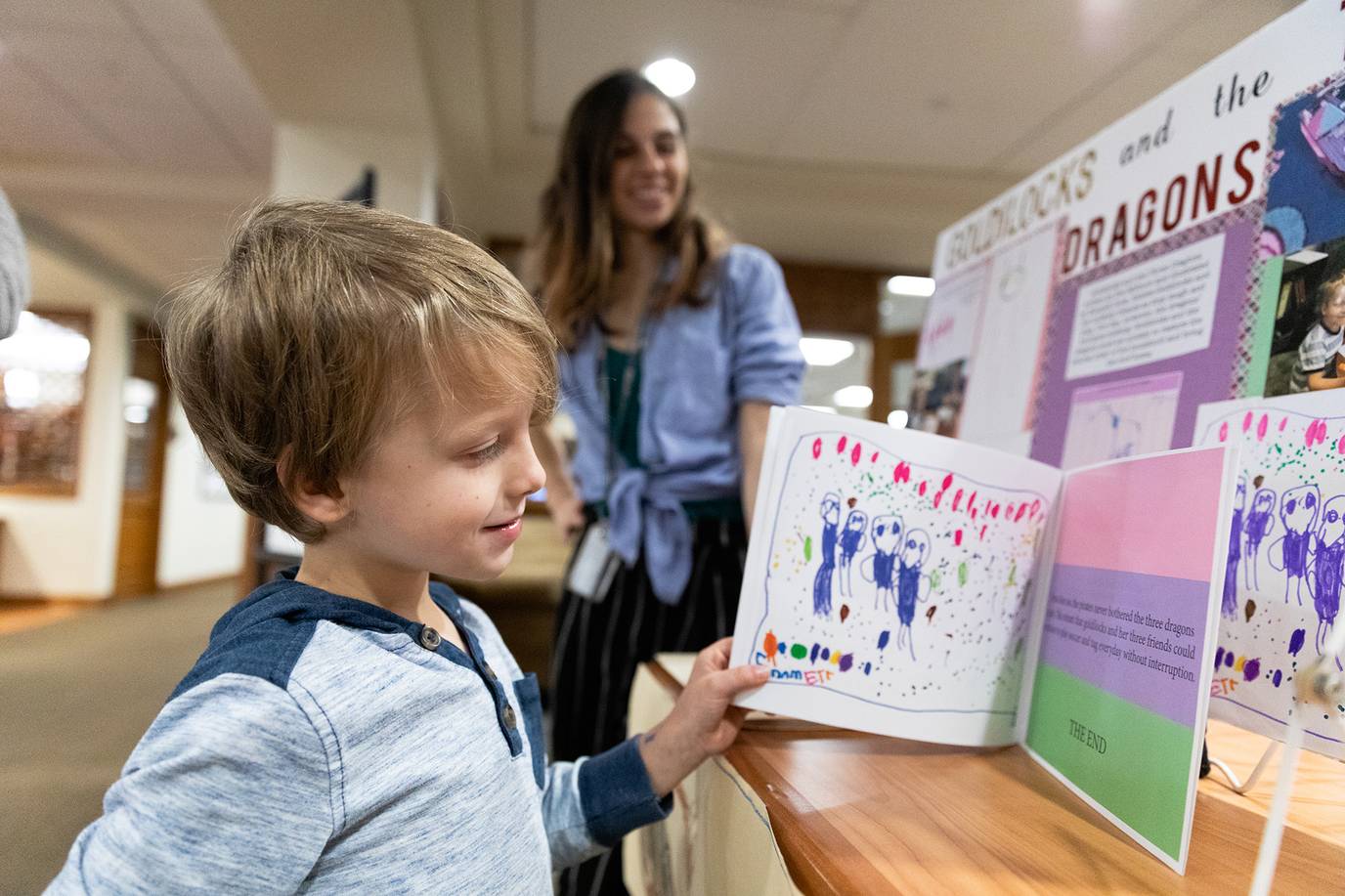
This honors course pairs students with preschoolers to explore the fine art of children’s literature—and the takeaways extend far beyond the creative process.
Baby Unicorn’s Birthday Party. Picnics Are Better with Neighbors. Spike the Megalodon. These may not sound like college-level texts, but they’re the result of an intensive Rollins honors course that pairs undergraduates with preschoolers to engage in the process of writing a children’s book. The immersive collaboration is a transformative experience for the students and children alike, exploring writing and literature along with psychology and early childhood behavior.
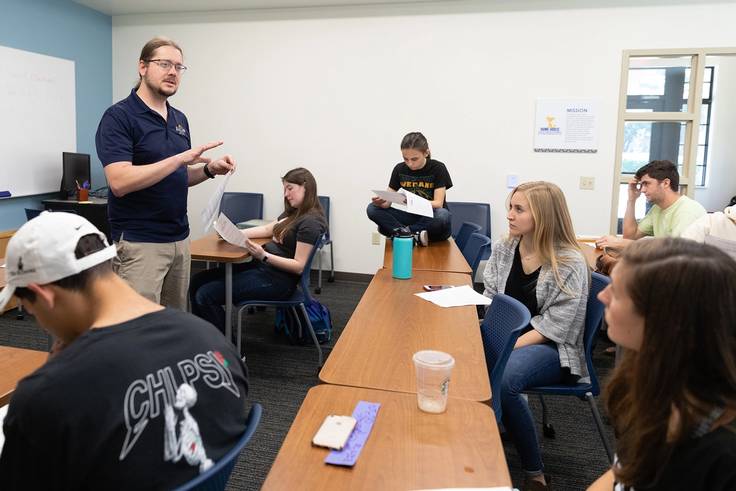
Instructor
Matthew Forsythe, assistant professor of English
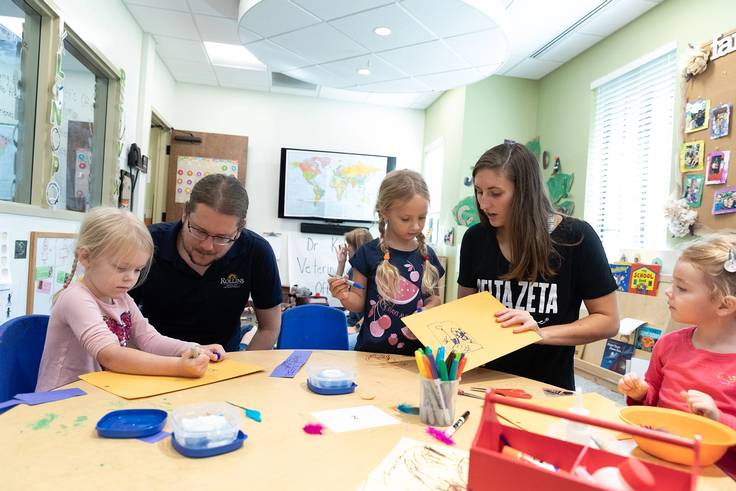
The Scoop
The goal of this honors-level community engagement (CE) course is to engage students in the fine art of writing children’s books. First, they study fiction and nonfiction classics by the likes of Maurice Sendak, Kevin Henkes, and Faith Ringgold. English professor Matthew Forsythe brings in dozens of books by the bag load, introducing the class to the ways that authors shape a moment of inspiration into a compelling narrative. He reveals how deceptively simple works are, in fact, aesthetically, artistically, and ethically sophisticated.
Then the students take their projects truly to the source by pairing up with 4- and 5-year-olds from Rollins’ Hume House Child Development & Student Research Center to create an illustrated book. While princesses and sharks figure prominently in the chosen titles, the process is far from child’s play. Warm-up brainstorming can involve playing on the floor and asking children well-chosen questions. “What do you want to write about?” may result in a blank stare, but targeted questions—like what are your favorite things or what books do you like—can unleash a torrent of answers.
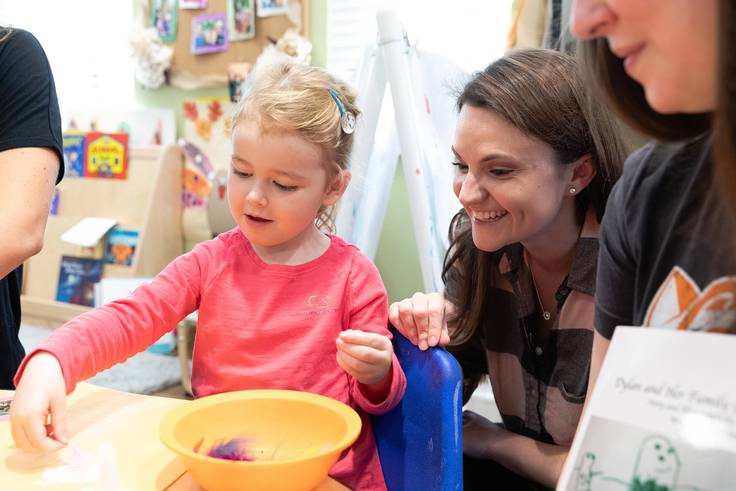
Forsythe says it’s important to let the children lead, encouraging them while respecting their personal limits. “They all speak different interior languages, and you have to learn the language of the particular child,” he says, noting the unpredictability of the story-development process. He tries to rid students of the notion that the book has to rhyme or teach a lesson. Letting the child protagonist, not an adult in the story, solve a problem is ideal.
To bring the plot and characters to life, the young co-authors draw original illustrations—sometimes with a liberal helping of glitter. They may build a tower with blocks or a boat with Legos, and then incorporate photographs of them into the text.
“I was surprised at the range of unexpected books that came out of it,” says Forsythe. “I knew they would be imaginative. I didn’t know how compelling they would be.”
The Rollins students later craft the book’s layout in Adobe InDesign and send the final version to be published via Blurb.
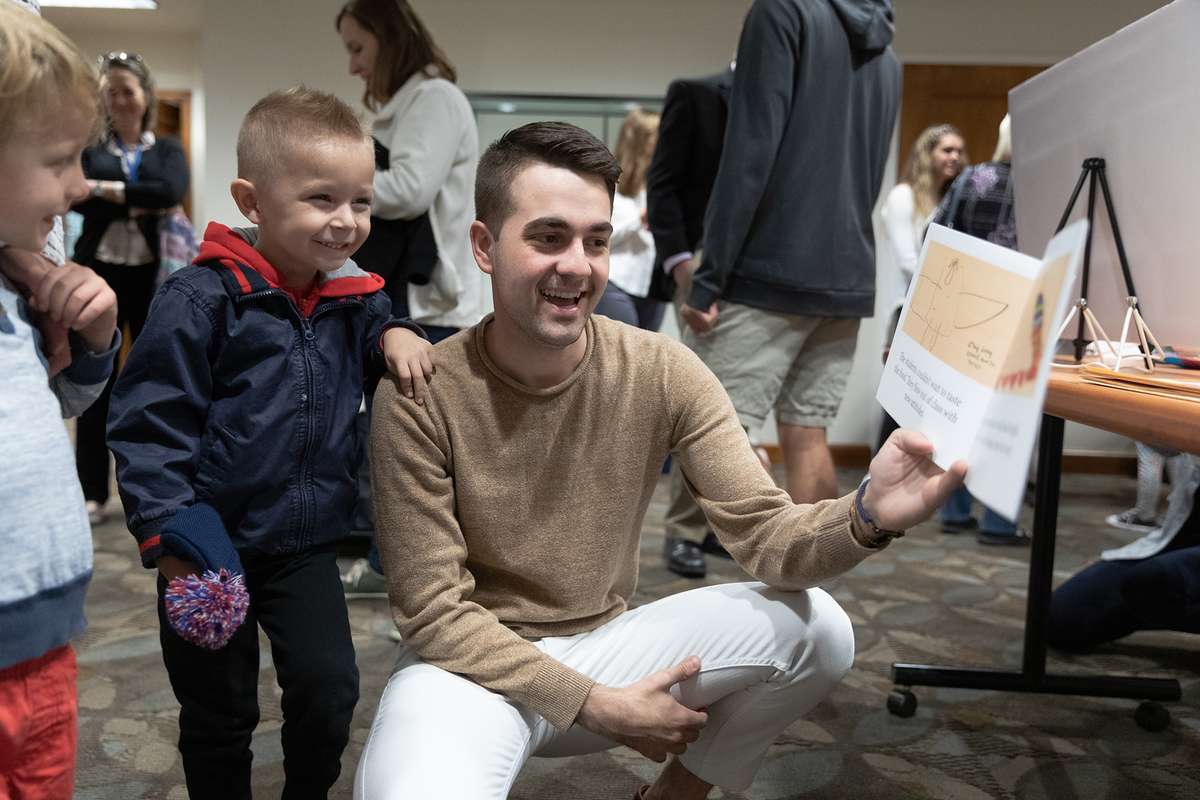
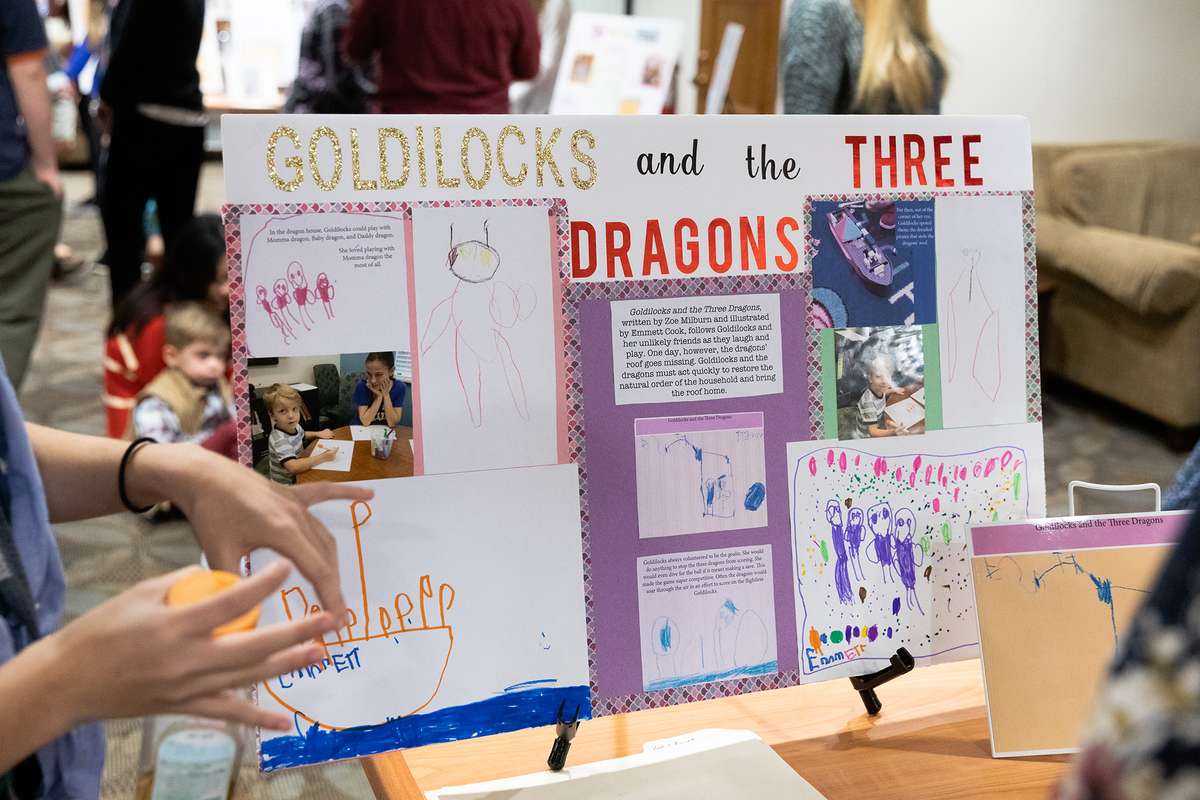
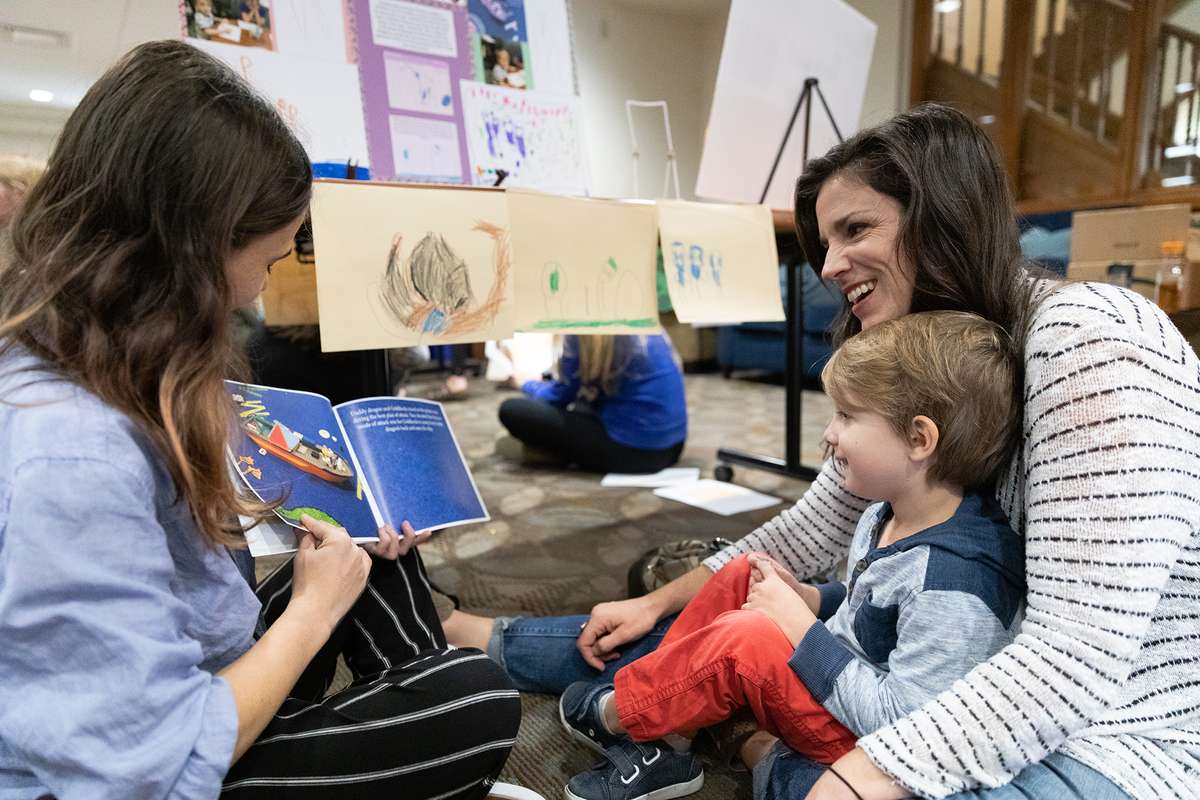
Snapshot
The partnership between the 18 students and 18 preschoolers culminates in a moment of celebration, a mid-semester showcase at Olin Library that’s open to the Rollins community. Parents, grandparents, faculty, staff, and librarians gather to see the preschoolers hold their published books in their hands for the first time. Alongside their books, the students present a poster board with a book summary and key illustrations they have designed with their undergrad partners.
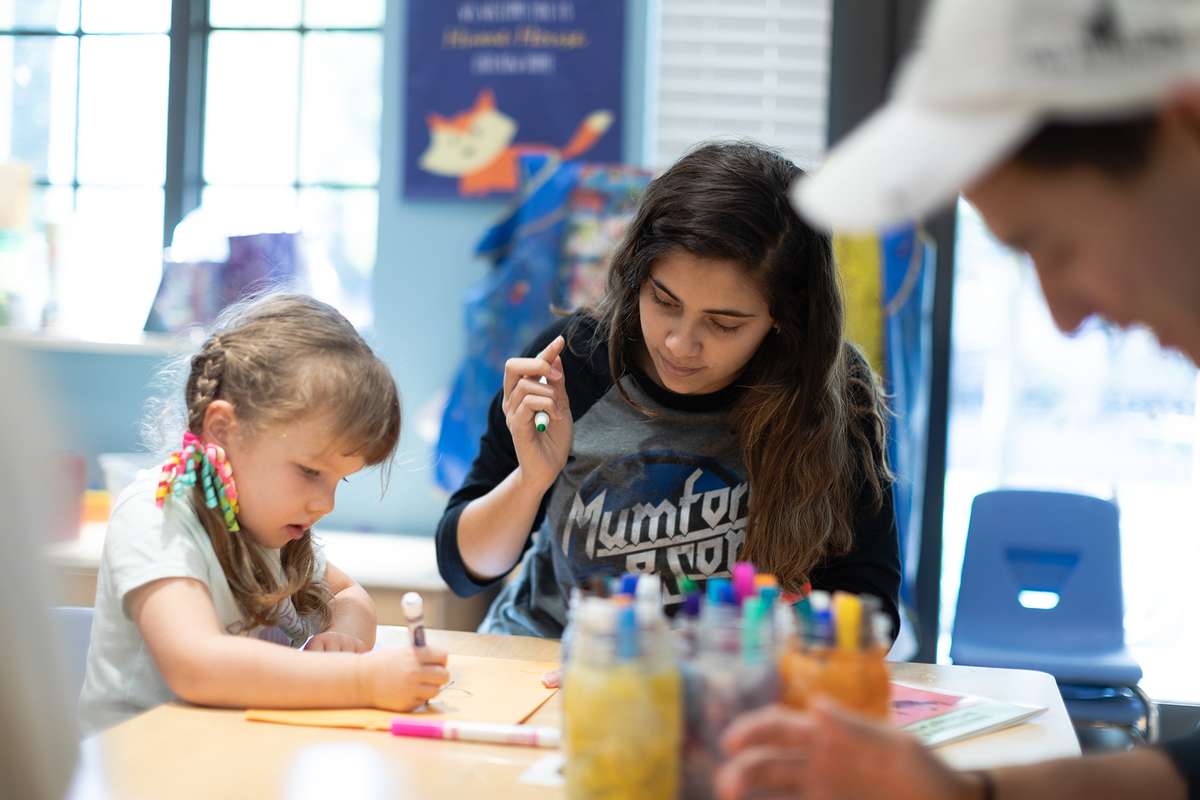
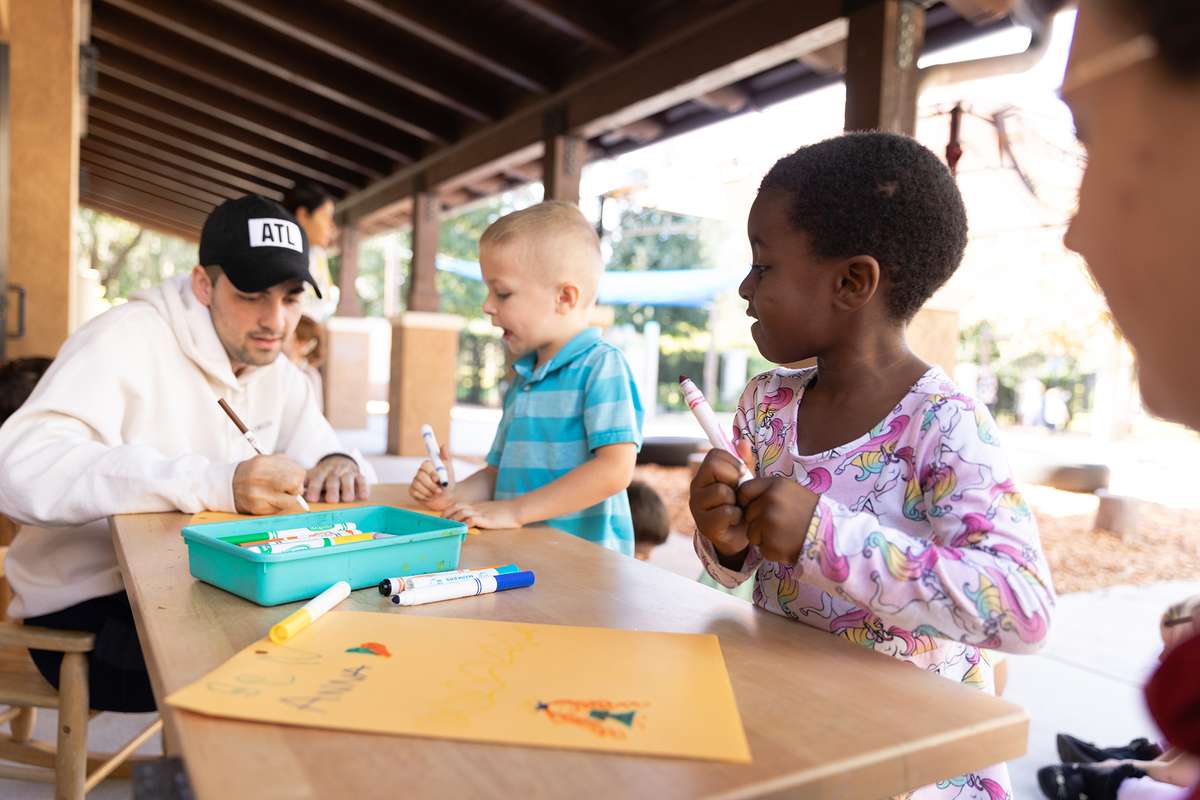
Student Perspective
“What surprised me the most was that no topic was off-limits,” says Rebekah Picerno ’22. The psychology major created one book about divorce and another book about a child being diagnosed with Type 1 diabetes. “Even young children go through really tough life experiences,” she says. “A children’s book can help them through that.”
International business major Abdiel Martinez ’22 believes the course fostered skills that will be useful in his future career on Wall Street. “That means teamwork, patience, and being able to have a positive attitude, day in and out—even when times are tough, like when only five pages are done.”
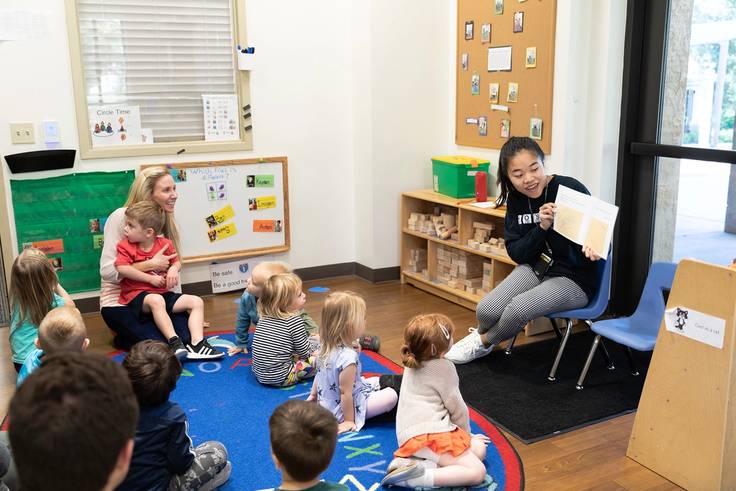
Did You Know?
The interdisciplinary nature of this rigorous course makes it perfect for non-writers or non-English majors. Pre-med, political science, physics, music, international relations—the study of all these disciplines can be enhanced by learning how to think through creating a story and working with others. An aspiring pediatrician in the class, for example, learns what it’s like to work in partnership with a young writer who could eventually become their patient, gaining trust, building confidence, and easing fears.
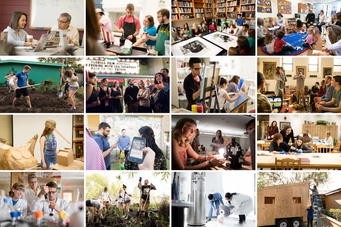
Read More
July 08, 2024
Gunter’s Book on Climate Change Receives Multiple Awards
Political science professor Mike Gunter’s book Climate Travels recently won awards from Foreword magazine and the American Library Association.
June 27, 2024
Lahlou ’24 Earns Boren Scholarship
Adam Lahlou ’24 has earned a Boren Scholarship, a prestigious award reserved for students who intend to pursue careers in federal national security.
June 17, 2024
A Path to Purpose
Falecia Williams ’91 expanded her world by earning a Rollins degree. Now, she is working to expand the worlds of thousands of college students.
